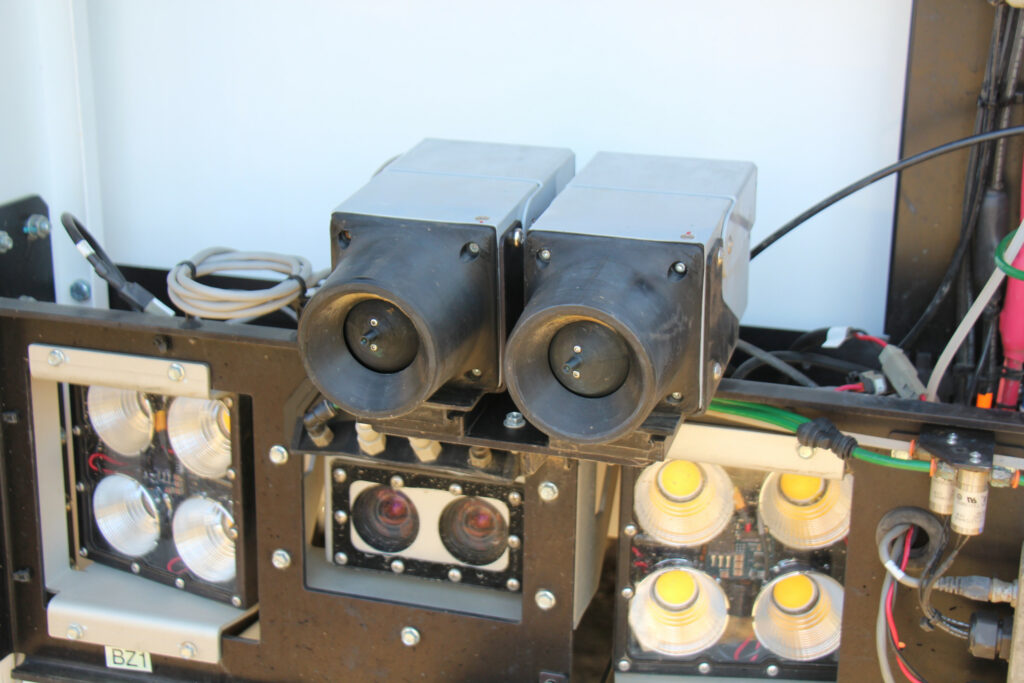FIRA USA 2024 – Robotic automation in arable farming becomes more diverse

The trade event FIRA USA provided a good overview of what’s happening globally in terms of autonomy and robotic automation in open-field crops. Autonomous vehicles and crop care were the focus points at the exhibitors’ stands and demonstrations, attracting about 2,200 visitors to Woodland, California, including 500 growers. Here are the highlights in two articles. This is part 1. Read also part 2.
For the third consecutive year, GOFAR, the University of California Agriculture and Natural Resources (UCANR), The VINE, and the Western Growers Association organized FIRA USA, the American robotics event for open-field crops. Held from October 22 to 24, the event brought in over 2,200 interested individuals from 38 countries to the Yolo County Fair in Woodland, California—500 more than last year. This year, exactly 500 visitors were growers who attended for the first time with free admission, coming from 20 countries.
Text continues below picture

Autonomous tractors
American manufacturers Agtonomy and Bluewhite demonstrated their retrofit kits on compact tractors in a simulated orchard. Agtonomy, which collaborates with Bobcat, showcased the autonomous electric Bobcat AT450X and, for the first time, an autonomous Bobcat CT4045 with a 45 HP diesel engine. Bluewhite, in partnership with New Holland, currently has 50 tractors outfitted with its autonomous kit available for rental, and by mid-next year, the retrofit kit will be available for purchase. Another U.S. company, Sabanto, initially converted Kubota M5 tractors for contract work with growers. Their retrofit kit, named Steward, is now also available for sale and can convert certain Fendt and John Deere models to autonomous operation. A new U.S. entrant, FarmX, offers the OrchardPilot steering system, which uses stereo cameras and LiDAR instead of GPS for navigation. An autonomous retrofit kit is expected to follow.
The California-based manufacturer of autonomous electric tractors, Monarch Tractor, recently raised $133 million in funding from Belgian investors to build a factory in Antwerp, Belgium, but was absent from the event. Major tractor manufacturers like John Deere and New Holland participated, both directly (John Deere See & Spray, Smart Apply) and through partners such as GUSS (John Deere) and Bluewhite and Stout (both New Holland).
Text continues below picture

Americans discover Ecorobotix Ara
As in previous years, there was significant interest in inter-row cultivators and mounted spot sprayers. The Swiss manufacturer Ecorobotix has been expanding in the U.S. for a year and a half, with its own organization and distribution through John Deere dealer RDO Equipment. RDO also collaborates with FarmWise, the manufacturer of the AI-powered Vulcan inter-row cultivator. FarmWise was not present at FIRA USA.
A manufacturer to keep an eye on and a direct competitor of Ecorobotix is Verdant Robotics. Their mounted “Sharpshooter” spot sprayer doesn’t use spray nozzles but instead uses self-developed, freely moving spheres with a tiny hole for targeted weed control. The company is also developing a mounted laser weeder, though details are not yet available.
Text continues below picture

Laser weeders (still) scarce
The Indian start-up Niqo Robotics chose FIRA USA to debut the RoboThinner, a spot sprayer specifically designed for thinning (initially) lettuce plants. It uses in-house developed RGB cameras identical to those on their RoboSpray spot sprayer, which the company has rented to 50 small and large farmers in India. The RoboThinner costs $250,000 and was developed specifically at the request of American growers, according to the company.
Carbon Robotics, a driving force in interest for weed control using laser technology, was absent from the event. Another American pioneer, Laudando & Associates, was also not present. However, the German start-up Escarda Technologies, which uses fiber laser technology, was in attendance. Developed in collaboration with tomato producer and processor Morning Star, Escarda’s laser weeder is marketed in the U.S. The company stated that it has now obtained the necessary European safety certifications and aims to start sales there as well.



